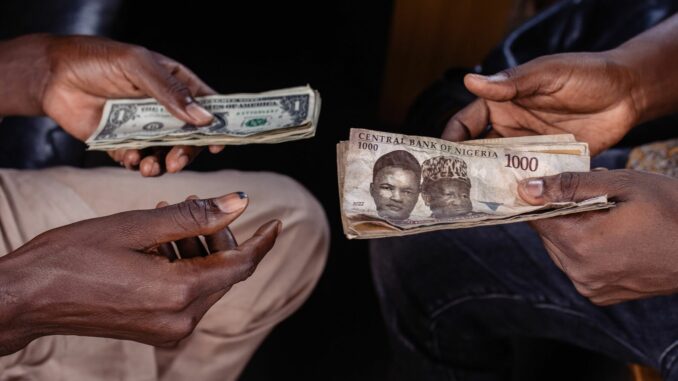
Nigeria’s Central bank announced its intention to intervene on the foreign exchange market to increase liquidity in response to the devaluation of the naira, which fell to a record low against the dollar, driving up prices on the local market.
The Nigerian currency fell steadily against the US dollar between 2015 and March 2017, and has now reached a record level at over N1000 to the dollar.
The current situation in Nigeria is due to the scarcity of the US dollar at the official exchange rate. Nigeria’s central bank wants to intervene on the country’s foreign exchange market to increase liquidity to resolve the naira devaluation crisis.
“This might help stabilize the situation for a limited period,” admits economist Isa Abdullahi, “but in the long term, if the government can’t manage the situation, it will revert to its former normal position. So, for us to be able to bet on certain stability, we need to get everyone involved in the work. Our young people need to find jobs, and we need to support our own economy using the national resources we have.”
One of the groups affected by the current crisis are Nigerian startups, which generally raise funds in dollars and generate revenues in naira. They say that the depreciation of the currency has led to sharp increases in server and software costs, while their revenues remain low in dollars.
